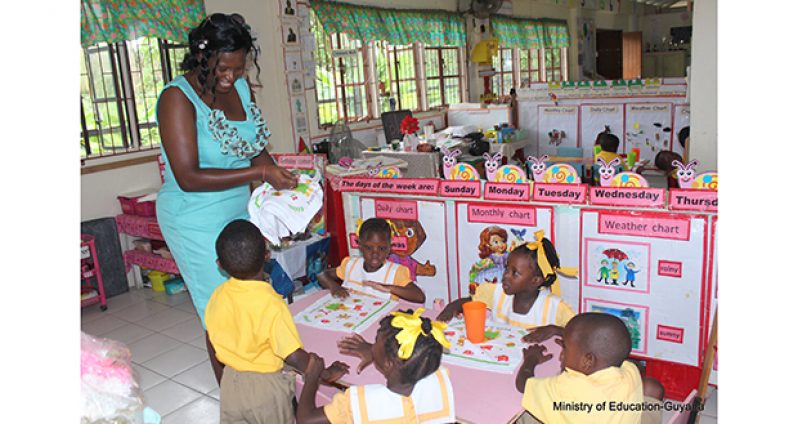The Ministry of Education is expanding and improving its school feeding programme to include a nutritionally balanced breakfast so that the impact of the crucial morning learning hours is not diminished.
A release from the Ministry noted that the pilot study is intended to examine the feasibility of implementing such a breakfast programme in schools in the coastal regions that have no cooking facilities. It will provide the essential information on cost, nutritional adequacy and community engagement to guide decisions on the design and budgetary implications of a full national school feeding programme (SFP), to be implemented in phases.
The key objectives of the study are:
- to examine the feasibility of providing a nutritious breakfast consisting of a sandwich and a flavoured milk-based drink to children in nursery schools and Grades 1 and 2 of primary schools in three coastal communities, ensuring the contribution of the meals provided to healthy eating habits with a sustainable approach based on the use of locally produced foods;
- To assess the acceptability of the various breakfasts offered, and provide basic nutrition education to enhance the acceptability of healthy local food, taking into consideration cultural patterns of consumption;
- To determine the cost per child of the programme, and the increase of the cost if utilizing local and healthy food;
- To determine the nutritional value of the school breakfast options (and compare with home breakfasts);
- To assess the extent of the communities’ engagement and their willingness to help and contribute facilities, time, cash or food commodities, enhancing social participation (families, PTA, and the entire community;
- To contribute to nutrition education of school communities for ensuring a commitment on the programme for sustainability.
- To provide the basis for the development of a detailed plan for a sustainable school feeding programme, providing young children in coastal schools with a nutritious and culturally acceptable breakfast.
- Promote and facilitate linkages with local production with special consideration to small farmers.

It was noted that three study sites have been selected in Region 4: Buxton, Friendship, and Enmore, all on the East Coast, a little less than8 km apart. According to the release, these sites have been selected to ensure that cultural acceptability is assessed within the two main coastal ethnic groups.
Guyana’s school feeding programme currently provides a snack of fortified biscuits and juice to all children in nursery schools and in Grades 1 and 2 of primary schools. Additionally, in hinterland primary schools, children are offered a hot lunch, prepared by trained community cooks and based, to the extent possible, on foods produced by the community.



.jpg)









